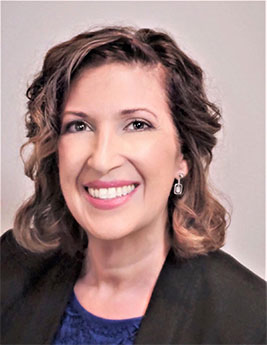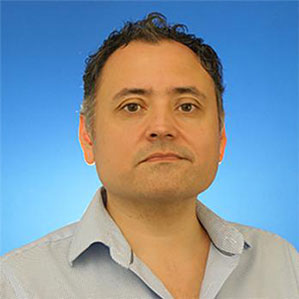
Mega Doctor News
By Victoria Brito Morales
RIO GRANDE VALLEY, Texas – Two UTRGV professors in the Department of Psychological Studies have attained new grants from the National Institutes of Health.

Dr. Laura Seligman, professor of Psychosocial Sciences, received a grant from the NIH’s National Institute of Dental and Craniofacial Research (NIDCR), to study ways to prevent dental phobia.
And Dr. Mario Gil, assistant professor of Psychological Sciences, was awarded a Career Development from the NIH’s National Heart Lung and Blood Institute, for his project titled “Role of Arginine-vasopressin and V1A receptor in psychosocial stress-induced myocardial injury.”
MITIGATING DENTAL PHOBIA
Seligman, principal investigator on the grant along with former University of Toledo colleague Dr. Andrew Geers, professor of Psychology and co-PI, are working on a research project titled “Identifying the mechanisms of latent inhibition to prevent dental fear,” to study ways to prevent the sort of dental phobia that can keep people from getting the important care they need.
This three-year, $1.4 million NIH grant took effect in August 2021 and provides support for health-related research and development.
Seligman’s research area of expertise is anxiety and depression, or internalizing disorders, in youth, children and adolescents.
When she first arrived in the Rio Grande Valley in 2014, Seligman said, she had heard of children experiencing such fear of the dentist that they either would not go or required general anesthesia to be treated.
“This study is to do foundational work, looking at if we can figure out how to prevent people from experiencing or developing dental phobia,” she said.
The goal of the research is to better understand how we learn, or fail to learn, new information in psychology and to harness that knowledge to prevent severe dental anxiety.
“Your mouth is important, as it is an entryway into the rest of your body,” Seligman said. “A lot of people who experience dental phobia can attest that it is very distressing.”
STRESS AND THE HEART
Gil is sole principal investigator on this five-year K01 grant, which also will give students a chance to participate in the research project, now in its first year.

“I think it’s very humbling to receive this ‘Career Development’ award, to realize how challenging it is to get it,” Gil said. “This is a very competitive grant to attain, and it has been quite a journey.”
Using animal models, Gil will humanely expose the subjects to psychological stress and study the effects on the cardiovascular system and the interactions between the heart and brain.
“We know there is a relationship between psychosocial or psychological stress and cardiovascular disease, but the issue is, we don’t fully understand the mechanism – what is the link, what exactly is happening,” Gil said.
The purpose of an NIH K01 grant “is to provide support and protected time for an intensive, supervised career development experience in the biomedical, behavioral, or clinical sciences leading to research independence.”
Part of this award is to identify a mentorship team, which Gil identified as:
Dr. Laura Seligman, UTRGV professor of Psychological Sciences.
Dr. Gabriel de Erausquin (UTHSCSA) distinguished professor of Neurology at UT Health Science Center San Antonio School of Medicine.
Dr. Gladys Maestre, professor of biomedical sciences at the UTRGV School of Medicine and director of the Alzheimer’s Disease Resource Center for Minority Aging Research.
Dr. Chun Xu, associate professor in the UTRGV Department of Health & Biomedical Sciences.
Dr. Victor Davila-Roman, professor of Medicine, Anesthesiology and Radiology at the John T. Milliken Department of Internal Medicine at Washington University School of Medicine in St. Louis (WUSTL).
Dr. Nazareno Paolocci, associate professor of Medicine at Johns Hopkins Medicine.
Dr. Lisa de las Fuentes, professor of Medicine and Biostatistics at the John T. Milliken Department of Internal Medicine at WUSTL.
And Dr. Ihsan Salloum, director of the UTRGV School of Medicine Institute of Neuroscience.
Seligman serves as Gil’s department mentor at UTRGV.
“Dr. Seligman has been very kind,” Gil said. “You have to identify mentors and have a plan to develop skills that advance your career. And then there’s the research.”








